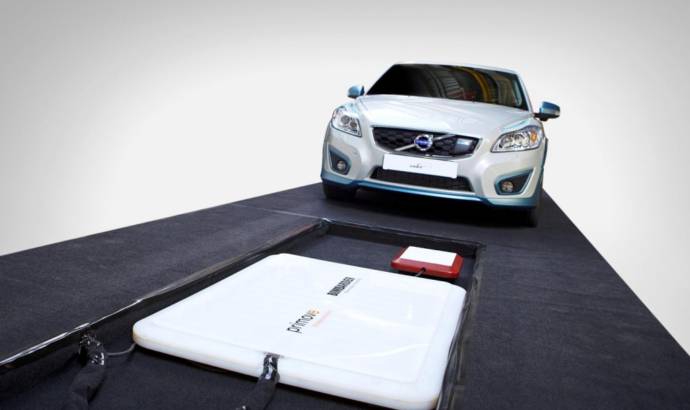Volvo Car Group has been a partner in an advanced research project that has studied the possibilities of inductive charging for electric vehicles – and the results show that this technology for transferring energy via an electromagnetic field has a promising future.
“Inductive charging has great potential. Cordless technology is a comfortable and effective way to conveniently transfer energy. The study also indicates that it is safe,” says Lennart Stegland, Vice President, Electric Propulsion System at Volvo Car Group, and adds: “There is not yet any common standard for inductive charging. We will continue our research and evaluate the feasibility of the technology in our hybrid and electric car projects.”
Inductive charging uses an electromagnetic field instead of a cord to transfer energy between two objects. An induction coil creates an alternating electromagnetic field from a charging base station. A second induction coil in the portable device picks up power from the electromagnetic field and converts it back into an electrical energy that charges the battery. This technology is common in electrical home appliances such as electrical toothbrushes but is not yet commercially available to charge electric cars.
The completed research project, which included inductive charging for cars and buses, was initiated by Flanders’ Drive, the knowledge centre of the automotive industry in the Flanders region in Belgium. It featured a consortium of companies, including Volvo Car Group, Bombardier Transportation and the coachbuilder Van Hool. The project was partly funded by the Flemish government. Volvo Cars supplied the car for the inductive charging project: a Volvo C30 Electric with a power output of 89 kW (120 hp).



